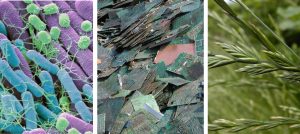Polluted Histories, Clean Futures? Opposing Scenarios for an Electronic Waste Circular Economy in China
Alicia Ng, University of Helsinki
For ZOOM Link please register HERE by Nov 18. You will receive the ZOOM link an hour before the event.
How does China’s polluted past and present inform it’s cleaner, more sustainably-minded future(s)? Are there other ways of engendering more sustainable thinking for wastes and pollution beyond normative ideas of the circular economy?
This presentation discusses the past, contemporalities, and futures surrounding the environmental issue of electronic waste and the pollution alleviation method of bioremediation in China. China has been the recipient of the majority of the world’s electronic waste, and has overtaken the US as the biggest e-waste producer. Pollution from e-waste has been an environmental and human health issue in e-waste towns such as Guiyu and Taizhou, and soil pollution there still detrimentally affects local communities.
Despite China’s pollutive past, the country has been one of the first in the world to adopt nation-wide circular economy regulations for waste and pollution, and it has also shown interest in nature-based solutions such as bioremediation, which uses plants and microbes to cleanup soil pollutants.
This presentation will explore bioremediation through the circular economy framework, as well as introduce the concept of ‘permanent pollution’ as put forth by chemical and toxicity scholars of the environmental humanities such as Max Liboiron and Eben Kirksey, as another way of understanding pollution and sustainability. Through methods like bioremediation, are we seeing zero waste and zero pollution goals be fulfilled, or are we instead observing our embeddedness in waste and toxicity, and its continued inevitability?
By interrogating standard conceptions of the circular economy, we will be exploring sustainable thinking for waste and the implications of ontologies of co-existence.
Bio: Alicia Ng, MSc in World Politics (University of Helsinki) is a Doctoral candidate in the Interdisciplinary Environmental Sciences (DENVI) program at the University of Helsinki and a member of HELSUS. Her Doctoral research focuses on non-human, multispecies belowground interactions of microbes and electronic waste in bioremediated soils in China, and the role of soil pollution and microbes in influencing concepts of sustainability, the Anthropocene, decay and transformation.

